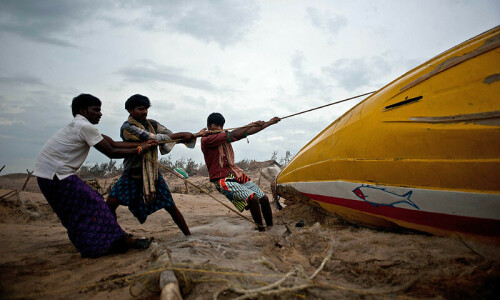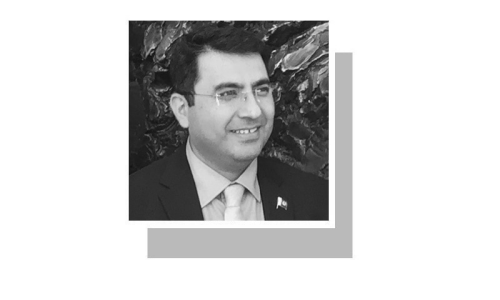KARACHI: “I have been spending sleepless nights for the past many months since my business almost ruined that left me heavily indebted,” claimed Mohammad Irshad, a dairy farmer in his 70s, while sharing with the media on Thursday his grievances over the prevailing milk crisis in Karachi.
Sitting at a Cattle Colony residence, he along with his friends informed the journalists that only the government was responsible for the crisis that was worse than any previous business failure in recent decades.
“Dairy farmers have been selling fresh unpasteurized milk to wholesalers at the same price for the past two years, while input costs including feed expenses and prices of new animals have multiplied,” complained Irshad whose two sons were arrested in a recent crackdown against ‘milk profiteers’. He got his sons released on bail after paying a huge sum.
Over 100 dairy farmers were imprisoned and many others fined across the city during the recent crackdown ordered by the commissioner.
Presently, they said, farmers sold their milk for Rs71 per litre to middle-men. The government notification on the price fixed with consensus in 2012 expired the same year and a new price needed to be fixed. That never happened.
The matter, according to them, was taken to the court by milk retailers association and the court stated that a new milk price should be fixed by the government after taking all stakeholders on board.
“We fail to understand why the government is bent upon controlling the prices of fresh unpasteurized milk only. It has no control over the prices of other agricultural commodities especially packaged milk currently priced over 100 rupees,” they said.
With continued losses in business, dairy farmers in Karachi received another setback when the RBST (recombinant bovine somatotropin), a synthetic version of the naturally occurring growth hormone (bovine somatotropin) that is used to increase milk production in dairy cows, just disappeared from the market following cancellation of its registration by the Drug Regulatory Authority.
The step was taken during the course of a hearing of a case still pending with the Lahore High Court.
According to dairy farmers, the ban on the use of synthetic hormone is a major factor behind milk shortages in the city. “The hormonal injection had been in use for the past 15 years in the country. Most of us were not fully aware of its impact on our buffaloes as we keep them for only one lactation period and once they get dry they are sold off,” one of them said.
An animal with reduced milk production, in his opinion, became a liability on the farmer at Cattle Colony because he neither have space nor staff to take care of the animal till its rehabilitation.
According to these farmers, the hormonal injection not only increased milk production but also its feed consumption. The animal that used to produce 10 to 11 kg of milk after being administered with injection is now producing eight to seven kilograms of milk.
“We used to give them on alternate days. Now with the ban on injection, most of us had to sell off their animals in losses after their milk production dropped,” said Zaheer Khan, adding that at least five dairy farmers running into debts had closed their businesses in recent months.
No farmer wanted to revive the use of hormonal injection, he said, adding that since it was declared harmful for humans and animals alike, the solution to milk shortage was increasing the number of milching animals.
Increase in the price of milk, they said, would help overcome shortage in milk production as it would encourage dairy farmers to invest in the business. Otherwise, they feared, dairy industry at Cattle Colony would completely collapse and ruin hundreds of families.
The two episodes of heatwave, they said, had also greatly affected milk production. Hundreds of animals, they claimed, either died in the heatwave during Ramazan or had to be slaughtered as they fell due to extreme heat.
The colony set up in 1960s and now houses between 350,000 and 400,000 animals has no proper road infrastructure and drainage system. Most animal waste end up the sea untreated.
Karachi Commissioner Shoaib Ahmed Siddiqui justified his action against dairy farmers and said that the committee would be announced after Eid. “They want to divert attention by giving different arguments in their favour. Fresh unpasteurized milk is a common man’s commodity and its price to be controlled,” he said.
The government, he said, was also taking action against other ‘profiteers’.
Published in Dawn, September 25th, 2015
On a mobile phone? Get the Dawn Mobile App: Apple Store | Google Play















































